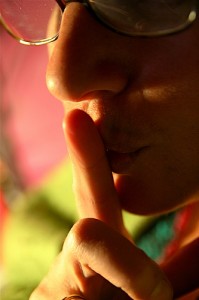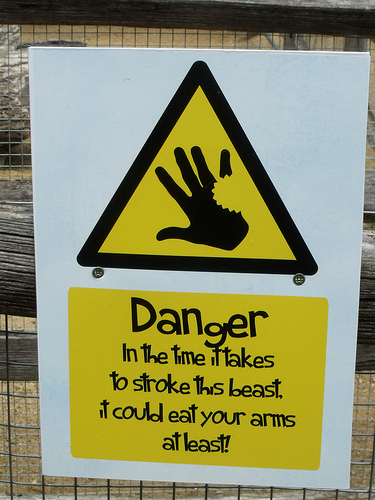Recently, I had the opportunity to read a delightful chick-lit book called The Booby Trap, by Anne Browning Walker. The protagonist is a woman who works in a bar similar to Hooters. Everyone just assumes that she is a bimbo, because she is blond and pretty, and earns a living in a place where men ogle her. What they don’t know is that she is a PhD candidate, and that her job provides her with material for her dissertation on women’s studies.
The woman meets a rich man during one of her shifts, and he has the same assumptions about her that everyone else does. She agrees to go out with him, but carefully guards her secret. She’s not ready for him to know that she is smart and ambitious – not at the beginning, anyway.
Although I would classify this story as very enjoyable light reading, it does raise an interesting question. How much do we really know our partners? Especially right after we’ve met them? Sometimes we go into relationships without really knowing a person, and I’m not talking about their deep dark history or the skeletons in their closet. Everyone has baggage that they don’t want to reveal right away.
No, I’m talking about the basic stuff. The information that most people can reasonably expect to know about someone before they start dating them. Here’s an example: I once dated a guy for five months without knowing that he was married. That’s a pretty fundamental thing to not know about your boyfriend. In fairness to me, the guy hid it really well. He kept a separate apartment in the city, he didn’t wear a ring, and nothing in his behaviour indicated that he had a wife stashed away.
Right after I found out about the wife, I broke up with him. It was nasty – the kind of breakup that involves yelling and insults slung all over the place. About ten days later, I was sitting on a park bench licking my wounds and vowing never to trust another man, when a stranger sat down beside me and told me I had beautiful eyes.
It was love at first sight. We went on our first date that night and we’ve been together since. We moved in together very soon after meeting, and neither of us kept anything secret from the other. We pretty much laid all our cards on the table right away.
There was one thing that was a little odd, though, and I’ve never been able to figure out the rationale behind it. When I met this stranger in the park, we exchanged basic biographical information. I told him that my name was Kirsten, I was originally from South Africa, and I was 31 years old. He told me that his name was Gerard, he was a first-generation Canadian of Irish descent, and he was 38 years old.
He lied about his age. At the time we met, he was actually about to turn 42.
It was not a big deal – I honestly didn’t care how old he was, and now I look back on it with a degree of bemusement – but it was just so unexpected.
I mean, a dude? Lying about his age?
WHY???
I thought only women lied about their ages, and to be honest, I’m not really too sure about the reasoning behind that either.
When Gerard told me his true age, he did give an explanation about the little piece of misinformation. I cannot remember the explanation now, but it seemed very philosophical at the time. I was so enthralled with him that I would have believed anything. He could have convinced me that he was actually an alien from Mars.
And who knows? Maybe he is.
Have you ever found out any secrets about your partner? Has he or she ever found out any about you?
(Photo credit: Steven Depolo. This picture has a creative commons attribution license.)











